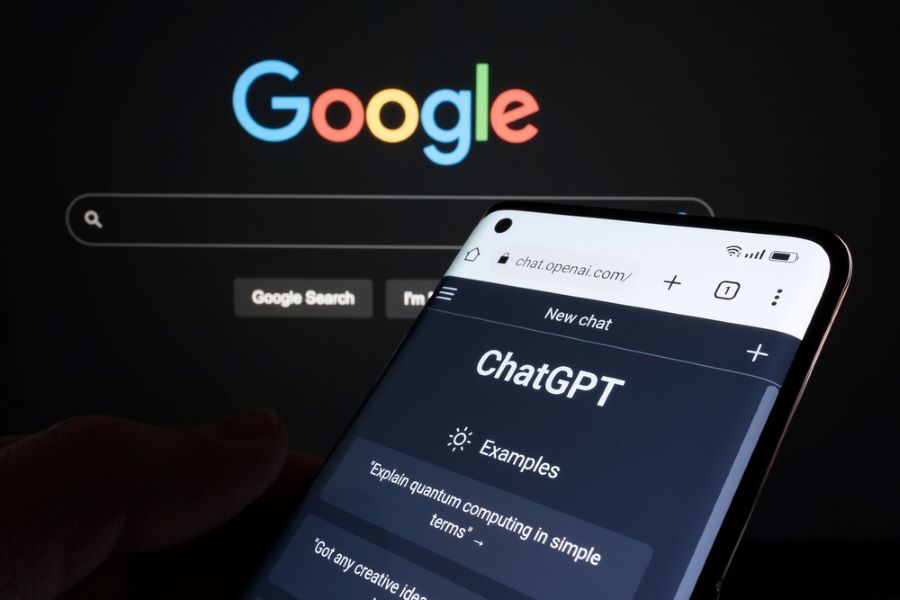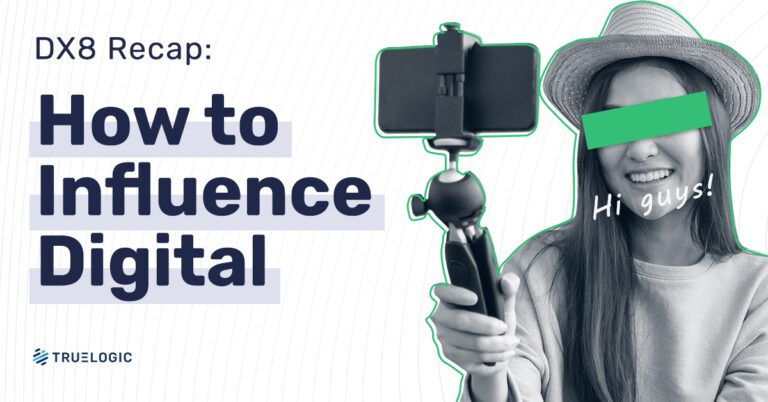Alternative Search Engines: Is Someone Eating Google’s Lunch?

Google dominates the global search engine market with a staggering 90.8% share, as of May 2024. Despite this overwhelming dominance, there are growing whispers about whether artificial intelligence (AI) tools and alternative search engines could challenge Google’s reign.
Let’s talk about the rise of AI tools such as ChatGPT, Copilot, and Google’s own Gemini, and discuss whether they, or other platforms, pose a real threat to Google’s search supremacy.
The Rise of Artificial Intelligence in Search
Artificial intelligence is changing how we access information, directions, activity suggestions, and product recommendations. AI tools have become an integral part of our digital lives, but do they have the potential to dethrone Google?
Bernard San Juan, Managing Partner at Truelogic, discusses three popular AI tools that rival Google in providing information, directions, activity suggestions, and product recommendations.
ChatGPT
Released in November 2022, ChatGPT quickly gained traction, amassing 100 million users in just two months. This rapid adoption rate was unprecedented, surpassed only by the launch of Threads. However, despite its initial buzz, ChatGPT hasn’t significantly impacted Google’s search volume.
“Today, ChatGPT has an estimated 200 million active users,” Bernard explains. “But it hasn’t really replaced search because it seems like people are augmenting their search behaviors with ChatGPT, not replacing them.”
While ChatGPT boasts impressive user numbers, Google still commands around 100 billion searches a month, equating to approximately 8.5 billion searches daily. This immense volume highlights the challenge AI tools face in disrupting Google’s stronghold.

Copilot
Microsoft’s Copilot, powered by OpenAI’s GPT-4 Turbo and DALL-E 3, was anticipated to be a game-changer. The announcement of Copilot, also known as Bing AI Chat, led to a notable bump in Microsoft’s stock price. However, its impact on search behavior has been modest.
“If you look at the traffic to bing.com/chat, it’s only about 281,000 visitors based on SEMrush data,” says Bernard. “In comparison, Google’s traffic remains in the billions.”
Despite the hype, Copilot has yet to significantly alter user preferences for traditional search engines.
Gemini
Google’s response to the AI revolution is Gemini, previously known as Apprentice Bard. Launched in early 2024, Gemini has shown promising traction, with SEMrush estimating traffic to its domain at around 11 million visitors in March 2024.
“Google’s making good traction,” Bernard notes. “But compared to the traffic to Google Search, it is still ultimately a drop in the bucket.”
Alternative Search Engines
While AI tools like ChatGPT, Copilot, and Gemini garner attention, other platforms also serve as alternative search engines, fulfilling specific user needs. Here are some noteworthy examples:
- Quora: With 361 million monthly users, Quora excels in satisfying “I want to know” moments.
- Reddit: Attracting 9.8 million monthly visitors, Reddit serves as a valuable source of diverse opinions and niche information.
- Wikipedia: A powerhouse of knowledge, Wikipedia draws 250 million monthly visitors.
- TikTok Search: Generating 746 million searches monthly, TikTok’s search functionality is gaining popularity, especially among younger demographics.
- YouTube: Owned by Google, YouTube handles around 3 billion searches monthly, primarily for video content.
- Amazon: Dominating product searches, Amazon sees 780 million monthly product search queries.
Despite their significant user bases, these platforms collectively account for only about 5.15 billion searches monthly, a mere fraction compared to Google’s 100 billion searches.

The Advertising Perspective
One of the critical indicators of Google’s continued dominance is its advertising revenue. At the close of 2023, Google’s ad revenue increased by $12.6 billion, reflecting a 6% growth from the previous year. This growth is driven by several factors, including an increase in global internet users, enhanced ad formats, and improved targeting capabilities.
“The fact that Google’s ad revenue is increasing by 6% sort of tells you that no, they haven’t lost 5% of their search traffic,” Bernard concludes.
The Future of Search: Will AI Eat Google’s Lunch?
While AI tools and alternative search engines are making strides, they have not yet posed a significant threat to Google’s dominance. However, as AI technology evolves and becomes more personalized, there is potential for change.
“Maybe in the future they will,” Bernard speculates. “When AI is personalized and in our pocket, user behaviors may change. But for now, people still Google it. So until market macro behaviors change, Google is likely to remain dominant at least for the next few couple of years. ”
In conclusion, despite the buzz around AI and alternative search engines, Google’s reign remains unchallenged—for now. The landscape of search is undoubtedly evolving, and it will be fascinating to see how AI and other platforms shape its future.
Stay ahead of these AI-driven changes by subscribing to the Truelogic DX Podcast on Spotify, Google, and Apple Podcasts.










